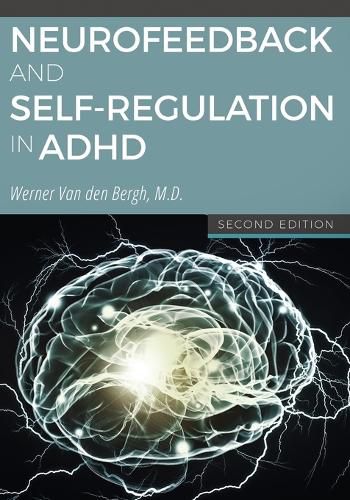Readings Newsletter
Become a Readings Member to make your shopping experience even easier.
Sign in or sign up for free!
You’re not far away from qualifying for FREE standard shipping within Australia
You’ve qualified for FREE standard shipping within Australia
The cart is loading…






This title is printed to order. This book may have been self-published. If so, we cannot guarantee the quality of the content. In the main most books will have gone through the editing process however some may not. We therefore suggest that you be aware of this before ordering this book. If in doubt check either the author or publisher’s details as we are unable to accept any returns unless they are faulty. Please contact us if you have any questions.
The first edition of this book was a groundbreaking, research-based clinical guide to the neurofeedback treatment of ADHD. This second edition maintains this high standard and has been extensively revised and expanded to include new research, an extensive number of new images, tables, and graphs (some in full color!), and innovative clinical concepts and issues. The author provides an expert overview of ADHD in terms of large scale brain networks and dysfunctional mechanisms of attention, vigilance, self-regulation, and executive functions. The most common forms of neurofeedback to treat ADHD are detailed, including traditional amplitude neurofeedback, LORETA neurofeedback, and slow cortical potential neurofeedback.
Neurofeedback is a psychophysiological treatment that normalizes the deviant brainwave activity. The author explains how neurofeedback for ADHD specifically strengthens self-regulation through improved balance within specific brain regions and networks; these gains in self-regulation abilities result in restored vigilance with enhanced metastability. In short, neurofeedback for ADHD is a non-drug treatment that fosters vigilance and self-regulation in ADHD.
Werner Van den Bergh is neurologist and psychiatrist in Leuven, Belgium where he founded Centrum Vigilant. Dr. Van den Bergh has specialized in a clinical-behavioral-neurological approach of ADHD since 1995, and he published several books and articles on this topic, including the first edition of this book entitled, Neurofeedback and State Regulation in ADHD: A Therapy Without Medication. He teaches QEEG for the Flemish Psychiatric Association in Belgium, and he is the co-founder of the Flemish self-support association for adults with ADHD.
$9.00 standard shipping within Australia
FREE standard shipping within Australia for orders over $100.00
Express & International shipping calculated at checkout
This title is printed to order. This book may have been self-published. If so, we cannot guarantee the quality of the content. In the main most books will have gone through the editing process however some may not. We therefore suggest that you be aware of this before ordering this book. If in doubt check either the author or publisher’s details as we are unable to accept any returns unless they are faulty. Please contact us if you have any questions.
The first edition of this book was a groundbreaking, research-based clinical guide to the neurofeedback treatment of ADHD. This second edition maintains this high standard and has been extensively revised and expanded to include new research, an extensive number of new images, tables, and graphs (some in full color!), and innovative clinical concepts and issues. The author provides an expert overview of ADHD in terms of large scale brain networks and dysfunctional mechanisms of attention, vigilance, self-regulation, and executive functions. The most common forms of neurofeedback to treat ADHD are detailed, including traditional amplitude neurofeedback, LORETA neurofeedback, and slow cortical potential neurofeedback.
Neurofeedback is a psychophysiological treatment that normalizes the deviant brainwave activity. The author explains how neurofeedback for ADHD specifically strengthens self-regulation through improved balance within specific brain regions and networks; these gains in self-regulation abilities result in restored vigilance with enhanced metastability. In short, neurofeedback for ADHD is a non-drug treatment that fosters vigilance and self-regulation in ADHD.
Werner Van den Bergh is neurologist and psychiatrist in Leuven, Belgium where he founded Centrum Vigilant. Dr. Van den Bergh has specialized in a clinical-behavioral-neurological approach of ADHD since 1995, and he published several books and articles on this topic, including the first edition of this book entitled, Neurofeedback and State Regulation in ADHD: A Therapy Without Medication. He teaches QEEG for the Flemish Psychiatric Association in Belgium, and he is the co-founder of the Flemish self-support association for adults with ADHD.